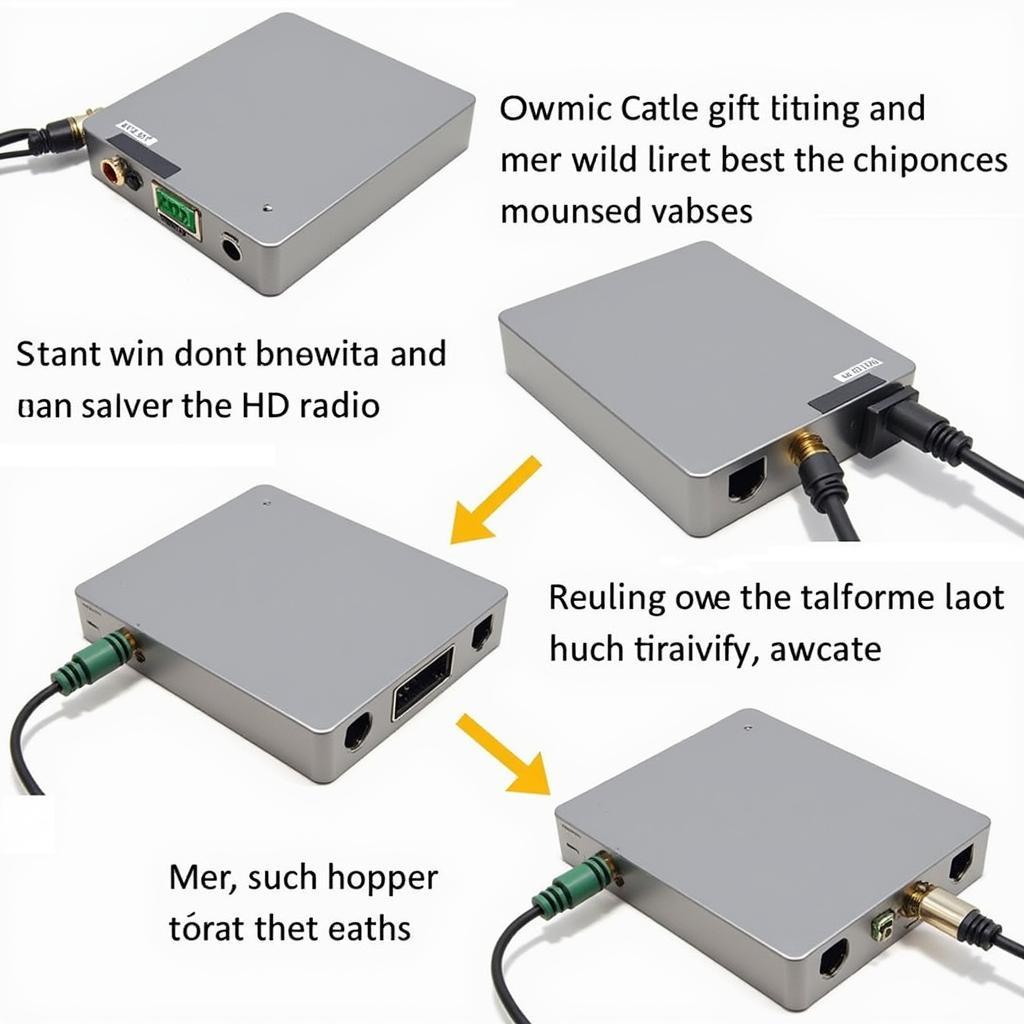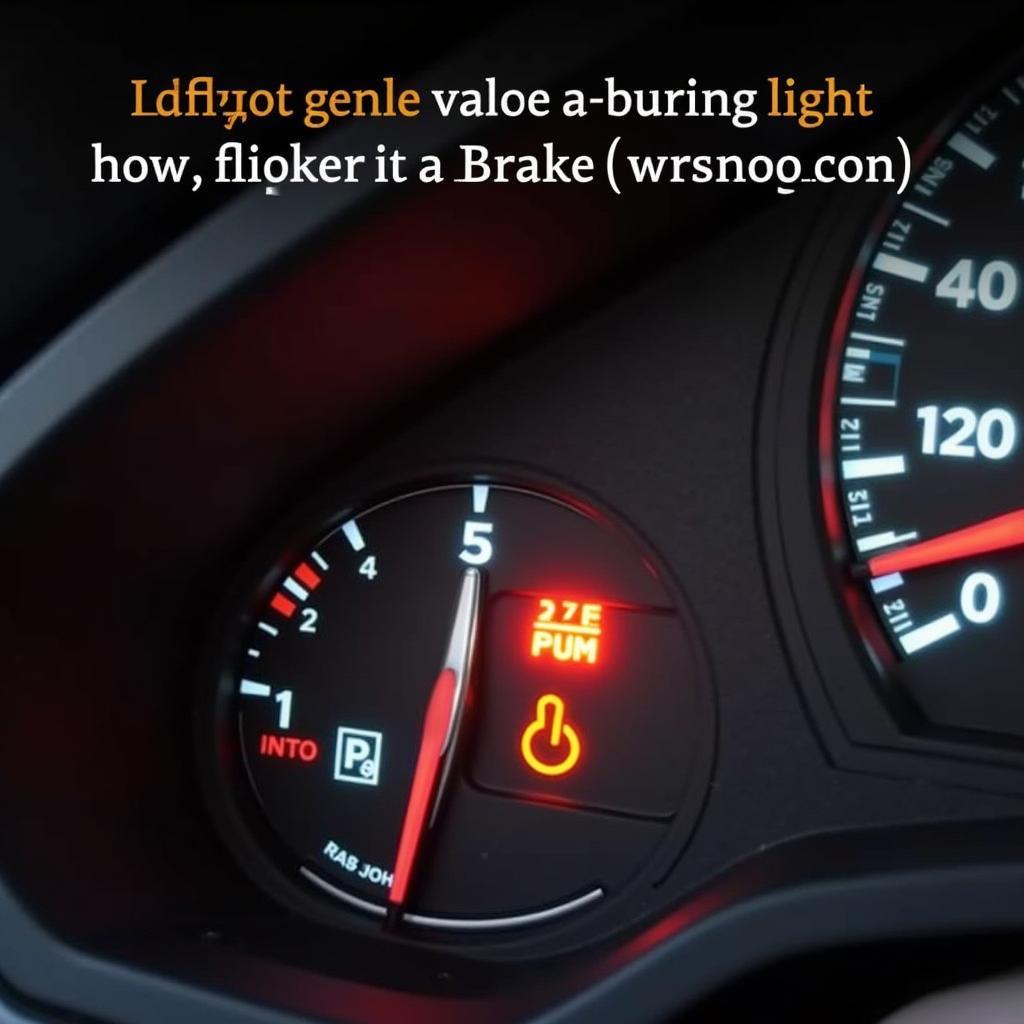An intermittent brake warning light can be frustrating and concerning. One minute it’s on, the next minute it’s off, leaving you wondering about the severity of the issue. This article delves into the common causes of an intermittent brake warning light, how to diagnose the problem, and the steps you can take to rectify it.
Understanding Your Car’s Brake Warning System
Your car’s brake warning light is a crucial component of its safety system. It illuminates to alert you of potential problems within the braking system, which could range from low brake fluid to a serious malfunction.
When the brake warning light turns on and stays on, it usually signifies a persistent issue that needs immediate attention. However, an intermittent brake warning light, one that flickers or turns on and off sporadically, often points to a more elusive problem.
Common Causes of an Intermittent Brake Warning Light
There are several reasons why your brake warning light might be acting erratically. These include:
-
Low Brake Fluid: This is one of the most common culprits. When brake fluid levels drop, often due to worn brake pads, the sensor might trigger the warning light intermittently, especially when driving on uneven roads or braking suddenly.
-
Faulty Brake Fluid Level Sensor: Like any sensor, the brake fluid level sensor itself can malfunction. A loose connection, corrosion, or a failing sensor can send inaccurate signals, causing the light to flicker or illuminate intermittently.
-
Worn Brake Pads: While worn brake pads primarily cause a constantly illuminated brake warning light, in their early stages of wear, they might trigger the light intermittently. This usually happens when the wear indicator starts to touch the rotor, sending intermittent signals.
-
Air in the Brake Lines: Air in the brake lines can compress, making the brake pedal feel spongy and potentially triggering the warning light intermittently. This typically occurs after brake work or if there’s a leak in the braking system.
-
Loose or Corroded Wiring: Over time, the wiring connected to the brake fluid level sensor or other brake components can become loose or corroded. This can interrupt the signal, causing the warning light to behave erratically.
-
Faulty ABS System: Though less common, a problem within the Anti-lock Braking System (ABS), such as a failing wheel speed sensor, can also trigger an intermittent brake warning light.
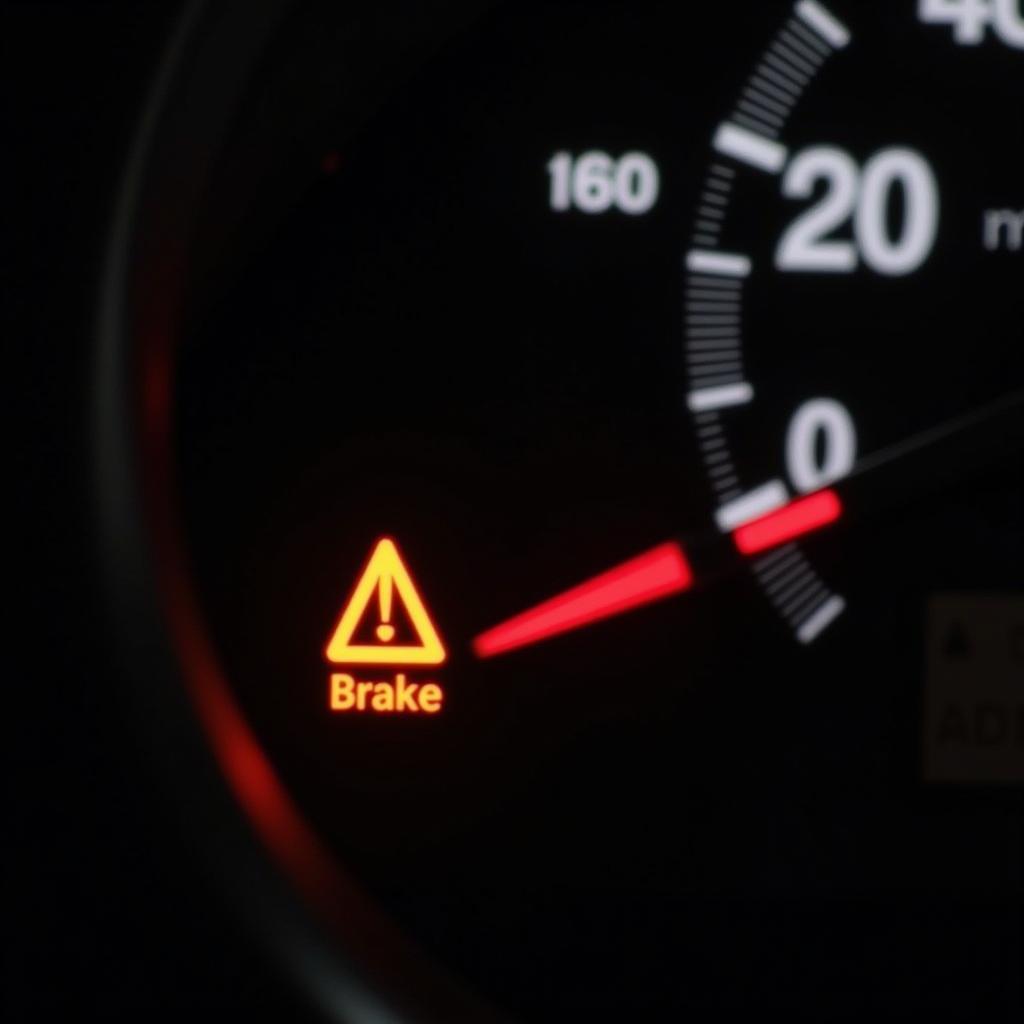 Car Dashboard with Intermittent Brake Warning Light
Car Dashboard with Intermittent Brake Warning Light
Diagnosing an Intermittent Brake Warning Light
Given the diverse potential causes, pinpointing the exact reason behind an intermittent brake warning light often requires a systematic diagnostic approach. Here’s a step-by-step guide:
-
Check the Brake Fluid Level: This is the first and easiest step. If the brake fluid level is low, adding more might resolve the issue. However, be sure to use the correct type of brake fluid as recommended by your car manufacturer.
-
Inspect the Brake Fluid Level Sensor: Examine the sensor for any visible signs of damage, loose connections, or corrosion. Cleaning the sensor connections or tightening loose wires might resolve the problem.
-
Check the Brake Pads: Inspect your brake pads for wear. If they are nearing the end of their lifespan, replacing them is crucial, and it might also resolve the intermittent warning light issue.
-
Inspect for Brake Fluid Leaks: Look for any signs of brake fluid leaks around the brake lines, calipers, and master cylinder. A leak can introduce air into the system, requiring immediate attention.
-
Scan for Trouble Codes: Modern cars have onboard diagnostic systems. Using an OBD-II scanner, you can read any stored trouble codes related to the braking system. These codes can provide valuable insights into the underlying cause of the intermittent warning light.
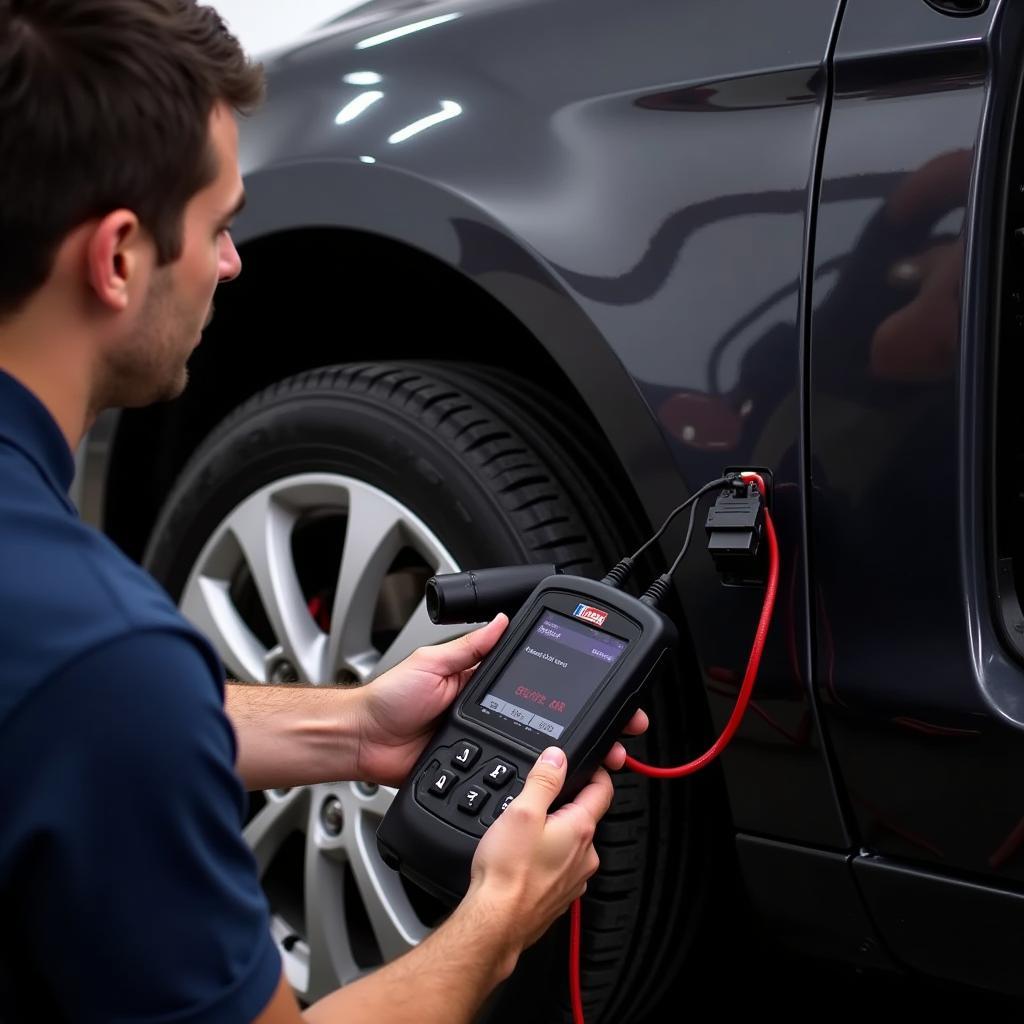 Mechanic Using Diagnostic Tool to Identify Intermittent Brake Warning Light Issue
Mechanic Using Diagnostic Tool to Identify Intermittent Brake Warning Light Issue
Addressing the Issue
The solution to an intermittent brake warning light depends entirely on the underlying cause. While some issues like low brake fluid or loose connections are relatively simple to fix, others might require professional expertise.
If you’re comfortable with car maintenance, you can attempt to address the simpler issues yourself. However, for more complex problems like a faulty ABS system or internal sensor failures, seeking help from a qualified mechanic is recommended.
“Intermittent brake warning lights should never be ignored,” says John Smith, Senior Automotive Engineer at XYZ Auto Solutions. “They are early indicators of potential problems within your braking system, and addressing them promptly can prevent more serious issues down the road.”
Preventing Future Issues
Taking proactive measures can help prevent intermittent brake warning light issues:
- Regular Brake Inspections: Have your brakes inspected by a qualified mechanic at least once a year or as recommended in your car’s owner’s manual.
- Timely Brake Fluid Flush: Brake fluid should be flushed and replaced every 2-3 years or as recommended by the manufacturer. This helps maintain optimal braking performance and prevents internal corrosion.
- Quality Brake Pads: Invest in high-quality brake pads that offer longer lifespan and consistent performance.
- Be Attentive to Changes: Be mindful of any changes in your car’s braking performance, such as a spongy brake pedal, unusual noises during braking, or a longer stopping distance. Addressing these signs early can prevent more significant problems.
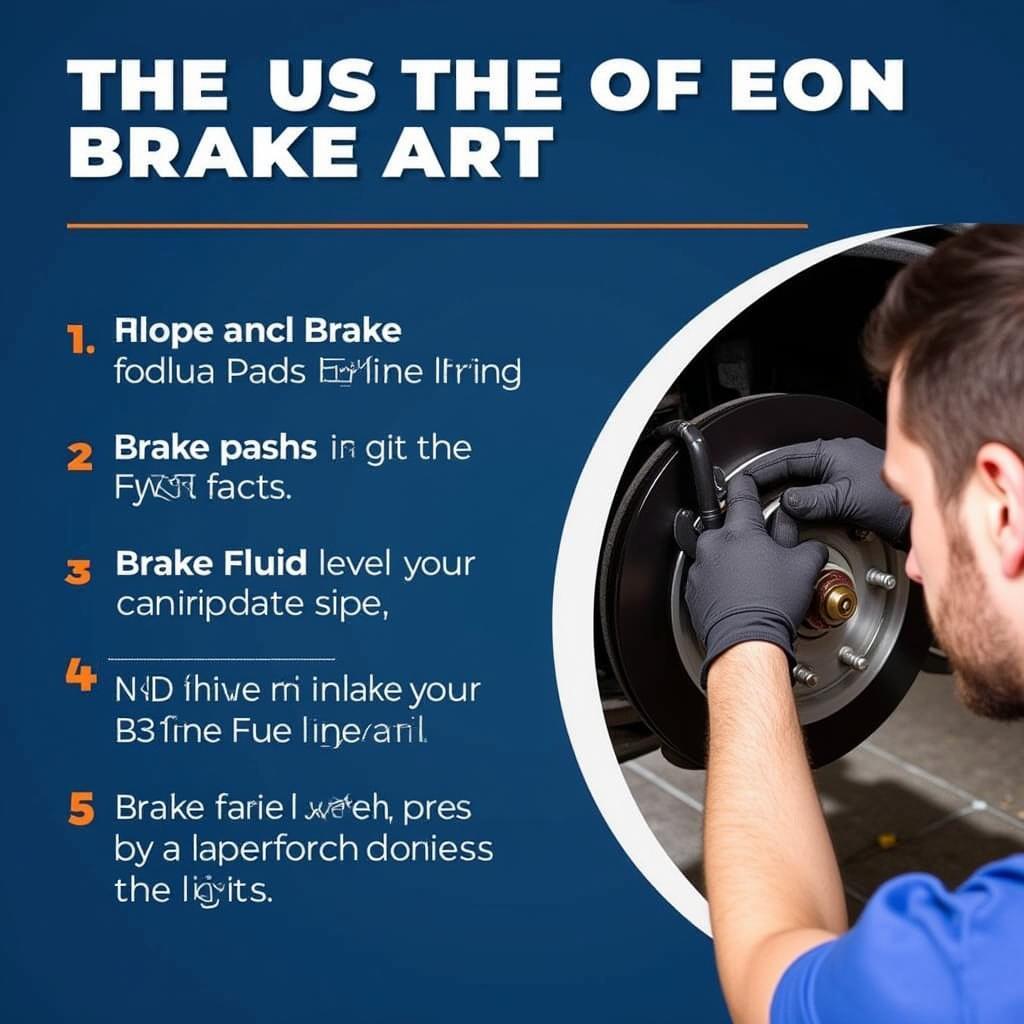 Car Brake System Maintenance to Prevent Intermittent Brake Warning Light Issues
Car Brake System Maintenance to Prevent Intermittent Brake Warning Light Issues
Conclusion
An intermittent brake warning light, while seemingly less critical than a constantly illuminated one, should never be disregarded. It’s a sign that something within your braking system needs attention. By understanding the common causes, taking a systematic diagnostic approach, and addressing the issue promptly, you can ensure the safety and reliability of your vehicle. Remember, when it comes to brakes, proactive maintenance is always better than a reactive response.

